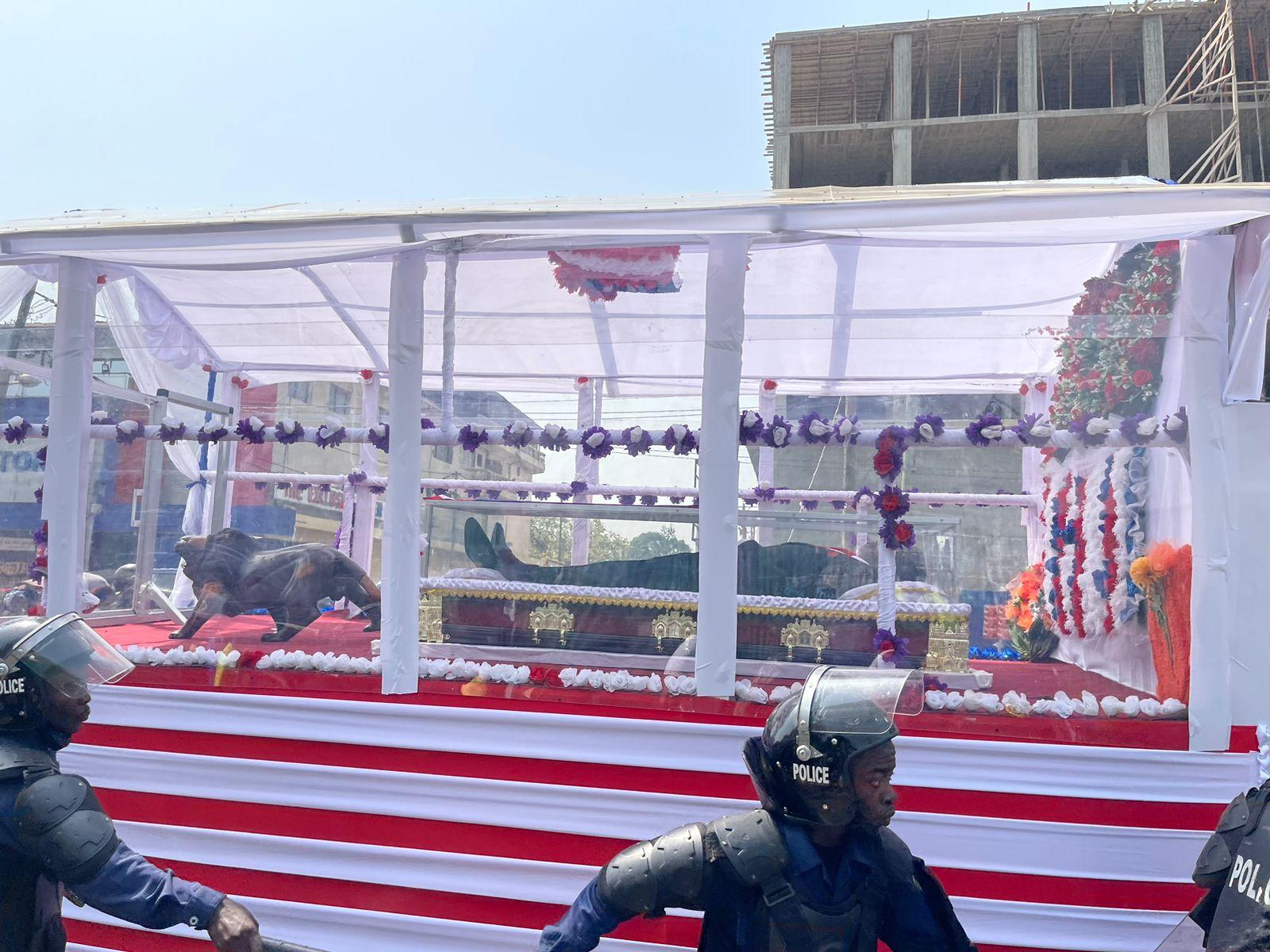Liberia: Senator Prince Y. Johnson's Remains Lie in State at Capitol Building

A state funeral ceremony, marked by both solemnity and historical significance, was held at the Capitol Building in Monrovia for the remains of Senator Prince Y. Johnson. The ceremony began with the transportation of his body from the Samuel Stryker Funeral Home early in the morning. A large procession of mourners and supporters accompanied the hearse along Tubman Boulevard, a major thoroughfare in the city.
At Monrovia City Hall, members of the 55th Legislature joined the procession, walking alongside the hearse. The casket was transparent, allowing the public to view the late senator's remains for a final time. This public viewing underscored the importance of the event and allowed citizens to pay their respects.
Senator Johnson's death on November 28, 2024, came as a shock. According to family sources, he collapsed in his room and was pronounced dead at a local clinic in Paynesville, a suburb of Monrovia. His unexpected passing has prompted widespread reflection on his complex and often divisive legacy.
Johnson’s historical significance stems primarily from his role in the Liberian Civil War. He was the leader of the Independent National Patriotic Front of Liberia (INPFL), a rebel faction. A particularly notorious event associated with him is the capture and execution of President Samuel Kanyon Doe in 1990. This event remains a deeply traumatic and controversial moment in Liberian history.
After the war, Johnson left Liberia but later returned and successfully ran for office, becoming the Senator of Nimba County. He served as a senator for a considerable period, becoming the longest-serving post-war senator and one of the longest-serving lawmakers in the country's history. This long tenure further solidified his presence in Liberian politics.
Johnson's legacy is highly polarized. Some consider him a warlord responsible for numerous atrocities committed during the civil war. These individuals focus on the violence and human rights abuses that occurred under his command. Conversely, he is deeply admired and revered in his native Nimba County. There, he is seen as a liberator and a hero, representing the interests and struggles of the people of Nimba.
The funeral ceremonies, which began on Monday with the signing of a book of condolence at the Capitol Building, are expected to last a week. The public will have the opportunity to view his body lying in state before it is transported to Nimba County for burial later in the week.
Despite the mixed reactions and the controversies surrounding his life and actions, the extensive funeral rites emphasize Senator Johnson’s undeniable significance in Liberia’s history and political landscape. For many people in Nimba, his death represents the loss of a key figure who symbolized their struggles and resilience during and after the civil war.
- Vibnix Blog
- Politics
- News
- Liberia News
- Entertainment
- Technology
- Educaţie
- Art
- Causes
- Crafts
- Dance
- Drinks
- Film
- Fitness
- Food
- Jocuri
- Gardening
- Health
- Home
- Literature
- Music
- Networking
- Alte
- Party
- Religion
- Shopping
- Sports
- Theater
- Wellness


